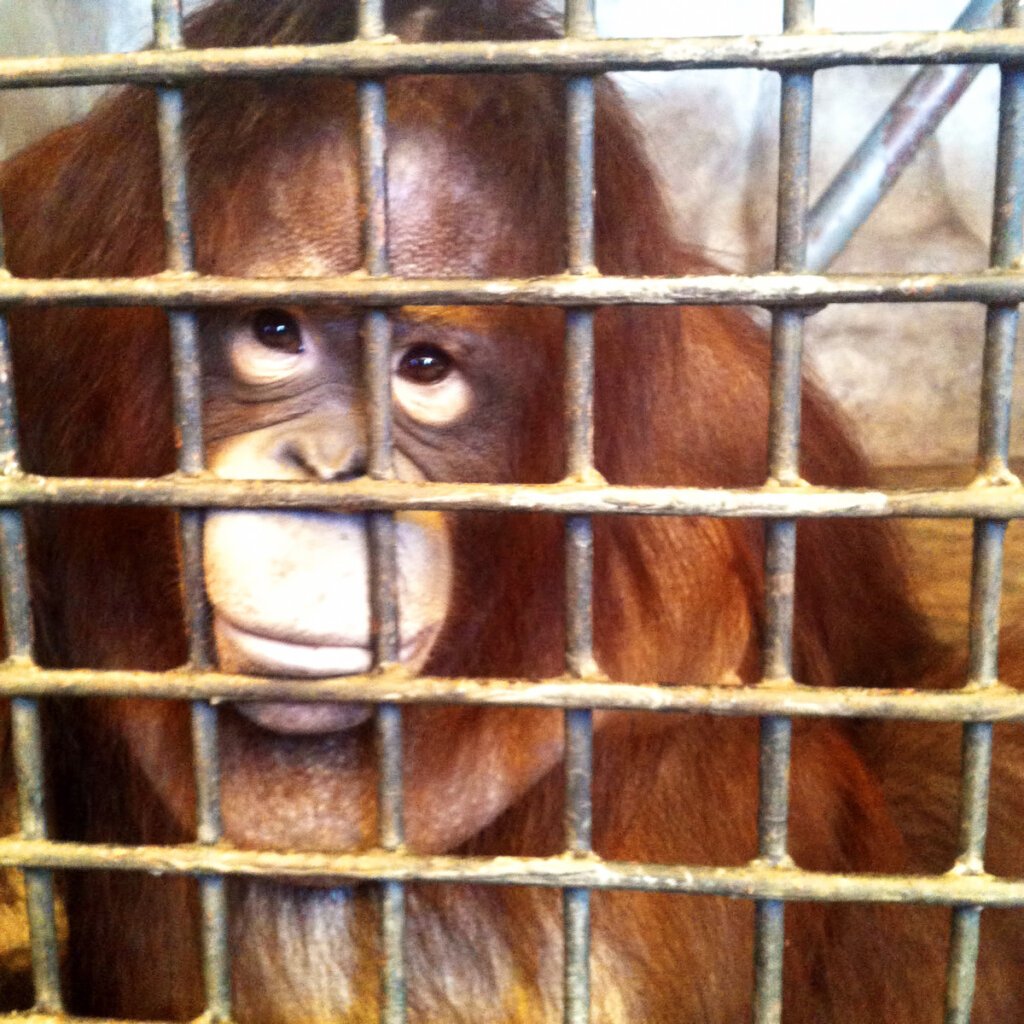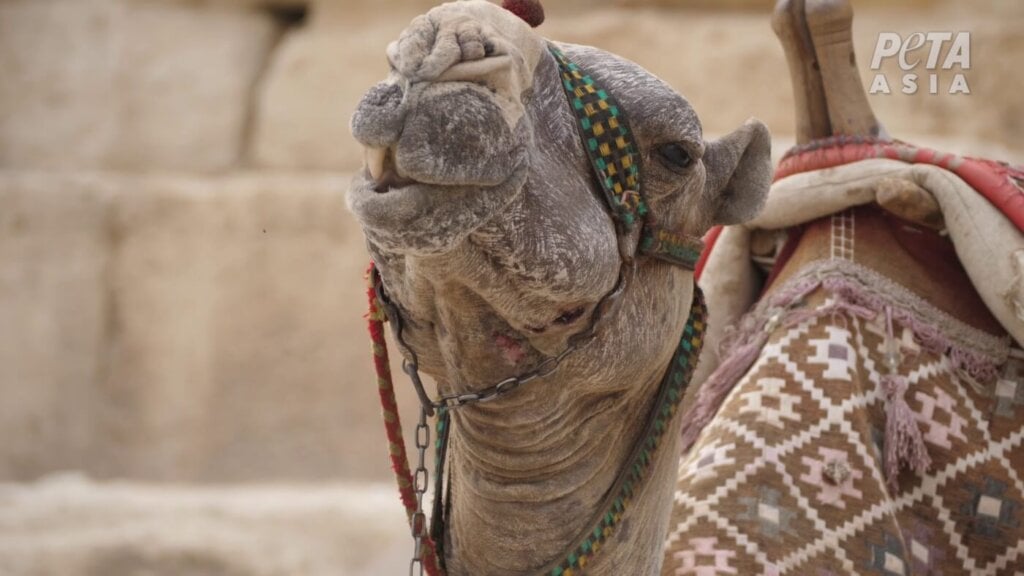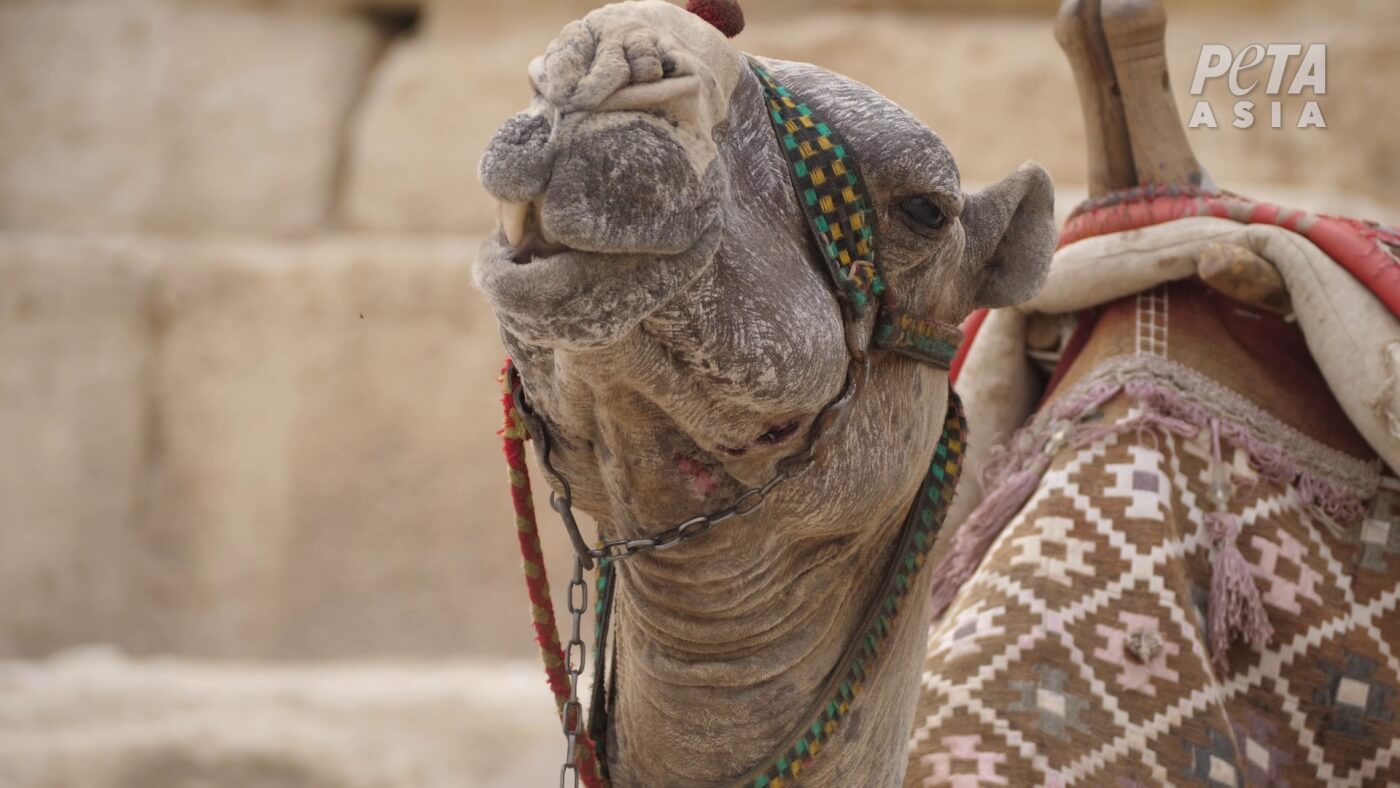
Animals Beaten, Exhausted, and Suffering at Egypt’s Tourist Sites
Camels and horses used for tourist rides at popular sites in Egypt are being beaten, hit on the testicles, and denied rest, while dead animals are dumped like rubbish. Despite their promises, the Egyptian government has done nothing to stop the abuse of animals at popular tourist sites.
In 2019, PETA Asia investigations at Egypt’s top tourist sites, including the Great Pyramid of Giza and Luxor’s royal tombs, documented the appalling abuse of horses and camels forced to haul tourists in carriages or serve as photo props in the blistering heat without appropriate shade or food.
When the first investigation broke, Egypt’s Ministry of Tourism and Antiquities promised to make meaningful changes. Yet when PETA Asia investigators returned years later in 2023 and 2024, conditions remained the same. Authorities hadn’t even bothered to honour the simplest promises of providing appropriate shade for the desperately hot animals at the pyramids. In correspondence with PETA, a ministry spokesperson admitted that the goal of any improvements was to benefit tourists, not the abused animals.
Please watch the following video in full to understand the severity of the widespread abuse of horses and camels in Egypt. Then share it with your friends and family.
Dead Horses and a Camel Dumped Like Rubbish
Horses are forced to carry tourists in scorching temperatures, and while they struggle to do so, they’re routinely whipped, even when exhausted. The animals are constantly hungry and tired, and they’re denied veterinary care for wounds and injuries.
PETA Asia investigators went behind the wall of the ticketed tourist area at the pyramids, and every single day, they found the dead bodies of horses dumped in a heap with rubbish. They also found a camel. It is likely that the animals were worked to death. Just steps away from the decaying bodies, malnourished horses were scavenging for food among the piles of rubbish. On one visit, investigators found a horse who was barely alive and had been left to die in agonising pain.
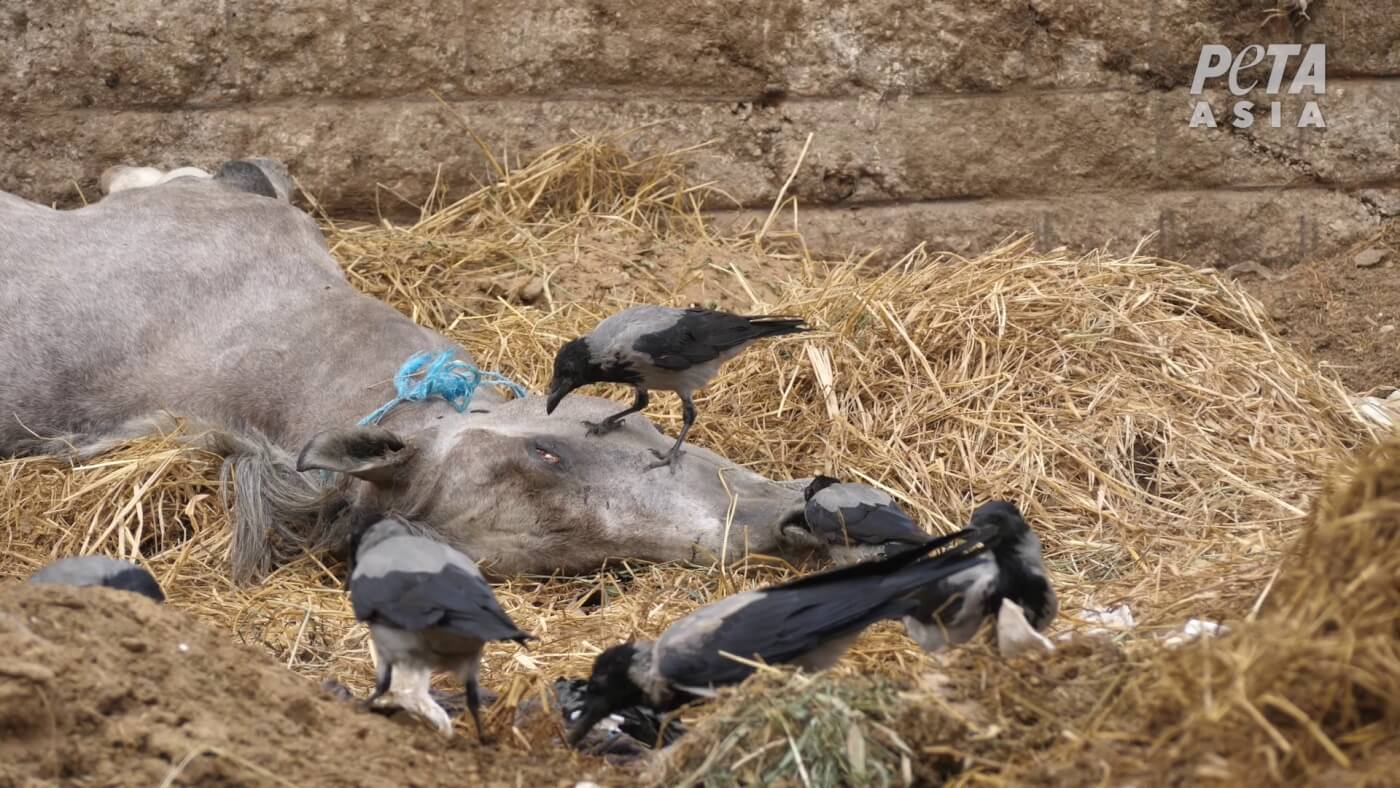
Authorities Cooperate With Animal Abusers
Instead of stopping the shameful abuse, the police and government authorities brazenly cooperate with the handlers to intimidate concerned visitors at the tourist sites. On one occasion, the police and a representative from the Ministry of Tourism and Antiquities detained a park visitor who had been taking pictures at the pyramids and demanded that the visitor delete any photos and videos of the camels and horses, falsely claiming that it’s against the law to photograph them. They then wiped and confiscated the visitor’s SD card. Horses were being violently whipped around them while this was happening, but the authorities didn’t care about that.
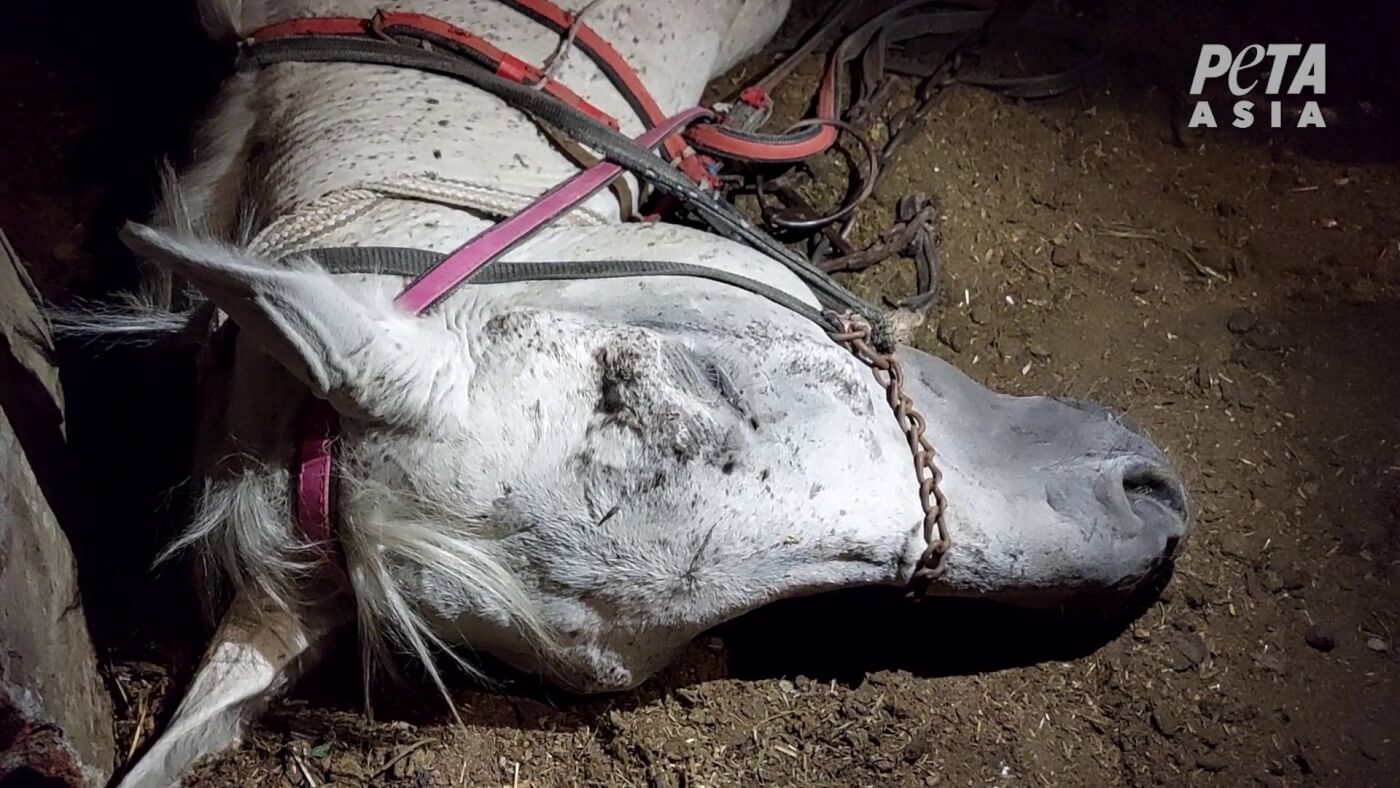
Camels Punched and Beaten With Batons
At the notorious Birqash Camel Market, where many camels are sold into the tourism industry to be used as photo props at tourist sites, PETA Asia investigators uncovered that camels are still being abused and found camels whose throats had recently been cut. Men assaulted the animals by pushing them and beating them with batons. Traders pulled the animals’ lips and ears, punched them, and prodded their testicles.
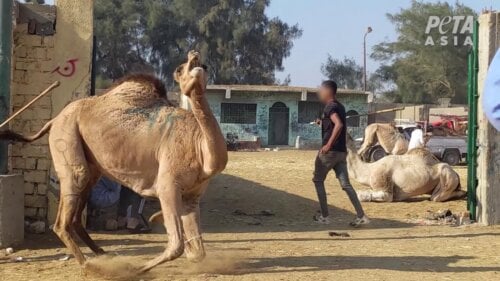
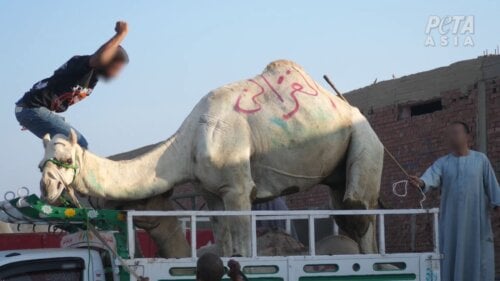
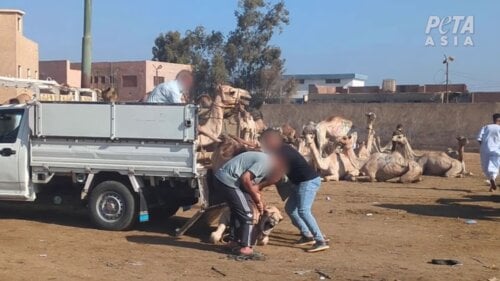
Camels from the tourism industry are also sold to abattoirs to become slabs of meat. They’re killed in front of one another and even in the presence of children. One camel whose throat had been slashed continued to kick for four agonising minutes, after which another worker hacked at his or her neck with a machete.
Take Action!
Tourists who pay to take horse or camel rides keep these cruel operations in business. If you’re planning to visit Egypt, leave animals out of it.
It has been years since Egypt’s Ministry of Tourism and Antiquities first promised to make changes for the animals suffering at the pyramids, but absolutely nothing has been done. Please urge Egyptian officials to put an end to this cruelty and impose a ban on using horses and camels to entertain visitors at the pyramids and other tourist sites.
Help Animals in 2025: Renew Your PETA Membership!
